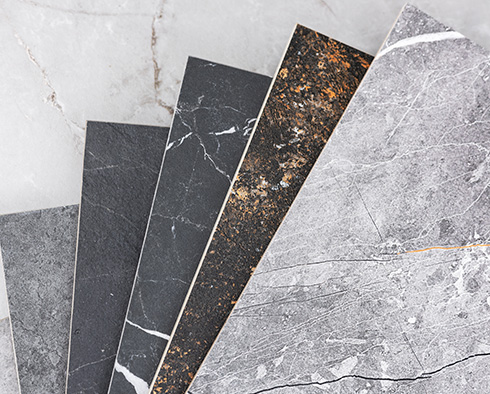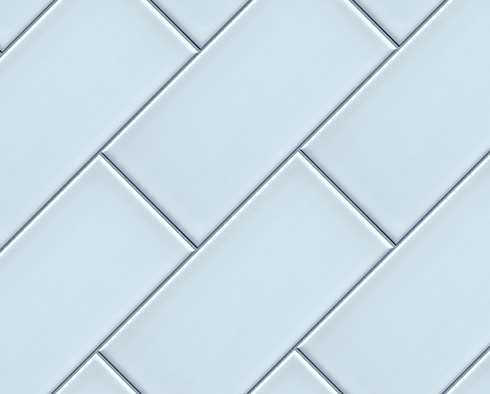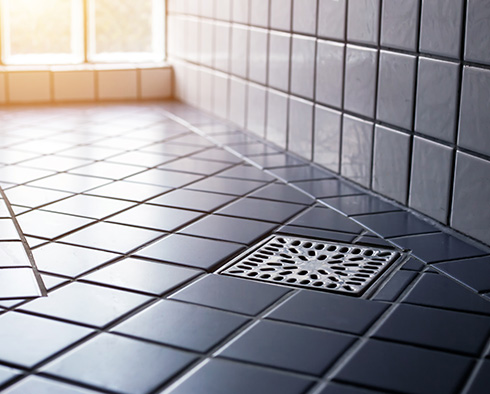What Is Marble Honing and Polishing, and How Does It Make Marble Shiny?
March 15, 2016
For millennia, humans have turned to marble to build some of our most memorable and luxurious monuments. Marvels like Michelangelo's David, the Taj Mahal, all the way to the Versace Mansion feature exquisite expanses of stone material. The key feature of luxurious marble is the quality of its surface. When marble is scratched and dull, it creates more of an "old museum" feel than the glamorous design we all look for. When you keep a busy home, maintaining your marble floor's beautiful polish can seem impossible. The challenge occurs when so many abrasives dull the surface. The biggest offenders are salt, snow, and acids.
What's the secret to shiny marble? Putting dull marble in the past is all about marble honing and polishing. Nonetheless, what happens to actually make marble dull?
Marble is a metamorphic rock - that means that it was exposed to very extreme conditions far beneath the surface of the Earth (Geology.com). Marble is a non-foliated rock, which means that it does not have a layered appearance. These two characteristics create the overall look of the rock itself. Now, most marble is formed from limestone, a stone that is made up mostly of calcium-carbonate. Calcium-carbonate is extremely vulnerable to acids – so much so that the calcium bonds with the extra hydrogen in the acid and gets damaged. This is just one source of damage to a stone's beautiful, shiny finish… but how do we get that glossy look in the first place?

What Makes Marble Shine?
A shiny stone surface indicates that the surface is extremely smooth. The smoothness makes it very easy for light to reflect from it. The smoother the stone, the more reflective it becomes. This happens because light stays together when it reflects from the stone, so much so that each ray bounces from the surface in the same direction. Of course, when a marble surface becomes rough and scratched up, the light bounces in all different directions. This uneven surface causes the light to refract, and our eye perceives a dull slab of marble.

We can make marble shiny again with honing and polishing. Marble honing is simply a method of buffing the stone and creating a more even surface. Once the rough spots are honed away, the marble will have a matte finish. The finish will be very scratch resistant at this point because it is not glossy. There will be no clear reflection when light shines on it, but the surface will appear smooth. Of course, this surface must be sealed - if left unsealed, honed marble will act like a sponge and soak up any liquids that spill on it! Whether honed or polished, liquids should be wiped up immediately from all stone surfaces.

If you want a glossy finish, there's a step after honing that will create the glossy finish you're looking for. Next, polishing the stone brings it to a shiny finish. Using a fine grit, we gently polish the surface until it sparkles. Polished marble is commonly found on countertops and in bathrooms because it's exposed to fewer abrasives like dirt, salt, and anything that comes in on shoes. It is still susceptible to scratching and etching from caustic liquids, so all spills must be wiped up immediately.

Maintaining Your Marble
No matter the finish, it's really important that you take good care of your marble. Both finishes should be sealed to prevent liquid penetration. Once sealed, regular maintenance will help you keep your marble looking beautiful. First, look out for common household substances that can easily spill on your luxurious marble. Here are a few of the liquids that should immediately be wiped up to prevent any damage to the seal or the stone underneath it.

Be careful using coffee, tea, butter, fruit juice, sodas, alcohol, vinegar, makeup, salad dressing, and tomatoes or tomato-based products. Don't let these sit on the marble! You must wipe these up right away with a clean, dry cloth.


When you clean, avoid DIYs and always check the pH of your product. Make sure you're using a pH-neutral cleaner. Both acidic and alkaline cleaners can easily damage and stain your stone. First, they will damage the seal, and after the "cleaning" is done, they will turn your polish dull and leave your marble exposed to future damage.


Does your marble look dull? Stone polishing will solve the problem. Just call us at (866) 476-8863 and we'll give you a free evaluation of your marble surface!
If you found this article helpful then let us know in the comments section below. Likewise, feel free to share it using the share options below. Want us to cover another topic of your interest pertaining to hard surface restoration? If so, then like us and follow us on social media, and post to any of our social media profiles the topic you'd like us to discuss: Facebook Sir Grout, Instagram @sirgrout, and Twitter @SirGrout.







